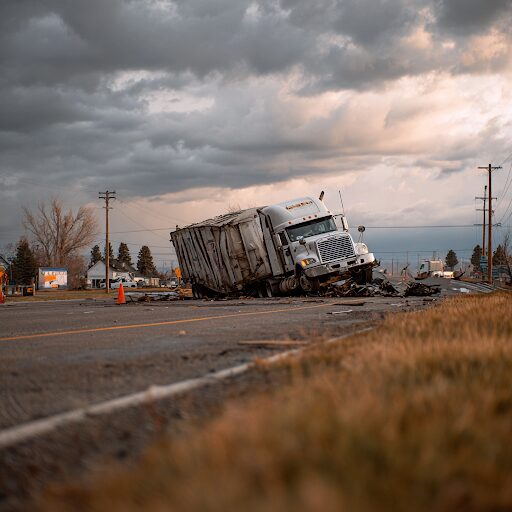Personal injury law is a detailed and often misunderstood area of legal practice that plays an essential role in protecting the rights of individuals who have been harmed due to the negligence or wrongful actions of others. This comprehensive guide aims to provide accident victims with a clear grasp of personal injury law, the claims process, and important considerations to keep in mind when seeking compensation for injuries.
Setting the Stage
Personal injury law encompasses a wide range of cases where an individual suffers harm due to another party’s negligence, recklessness, or intentional misconduct. These cases can arise from various scenarios, including car accidents, workplace injuries, medical malpractice, slip and fall incidents, and defective products. Understanding your rights and the legal processes involved is essential for anyone who has been injured and is considering pursuing a personal injury claim.
The primary goal of personal injury law is to provide compensation to victims for their losses, which may include medical expenses, lost wages, pain and suffering, and other damages. By holding responsible parties accountable, personal injury law also serves to deter negligent behavior and promote public safety.
Common Types Of Personal Injury Cases
Car Accidents
Common causes of car accidents include:
- Distracted driving
- Speeding
- Drunk driving
- Reckless driving
- Poor weather conditions
- Vehicle defects
When pursuing a car accident claim, it is essential to understand the legal considerations involved. These may include determining fault, dealing with insurance companies, and navigating state-specific traffic laws. In complex cases or when facing serious injuries, seeking the assistance of an experienced Houston car accident attorney can be invaluable. These legal professionals have in-depth knowledge of local laws and can guide victims through the often complicated process of securing fair compensation.
Workplace Injuries
Types of workplace accidents include:
- Falls from heights
- Slip and trip accidents
- Machinery-related injuries
- Repetitive strain injuries
- Exposure to harmful substances
When dealing with workplace injuries, it’s important to understand the difference between workers’ compensation claims and personal injury lawsuits. Workers’ compensation is a no-fault system that provides benefits to injured employees regardless of who was at fault for the accident. However, these benefits are often limited and may not fully cover all losses.
In some cases, injured workers may have grounds for a personal injury claim in addition to or instead of a workers’ compensation claim. This typically occurs when a third party (not the employer) is responsible for the injury or when the employer’s conduct was intentional or grossly negligent.
Slip And Fall Accidents
Slip and fall accidents fall under the category of premises liability cases. Property owners have a legal duty to maintain safe conditions for visitors and warn of any known hazards. When they fail to do so, and someone is injured as a result, the property owner may be held liable.
Common locations for slip and fall accidents include:
- Supermarkets and retail stores
- Restaurants and bars
- Office buildings
- Apartment complexes
- Public sidewalks and parking lots
Proving negligence in slip and fall cases often requires demonstrating that:
- The property owner knew or should have known about the dangerous condition
- The property owner failed to address the hazard or provide adequate warning
- The victim’s injury was directly caused by the dangerous condition
The Personal Injury Claims Process
Immediate Steps After An Accident
The actions taken immediately following an accident can significantly impact the outcome of a personal injury claim. Key steps include:
- Seeking medical attention: Even if injuries seem minor, it’s key to get a medical evaluation. Some injuries may not be immediately apparent, and prompt medical care creates a record of your injuries.
- Documenting the scene: If possible, take photos of the accident scene, your injuries, and any property damage. Collect contact information from witnesses and involved parties.
- Reporting the incident: File an official report with the appropriate authorities (e.g., police for car accidents, employer for workplace injuries).
Gathering Evidence
Building a strong personal injury case requires thorough evidence collection. Types of evidence that can support your claim include:
- Medical records and bills
- Accident reports
- Witness statements
- Photographs and video footage
- Expert testimony (e.g., accident reconstruction specialists)
The role of expert witnesses can be particularly important in complex cases. These professionals can provide specialized knowledge to help establish liability or the extent of damages.
Dealing With Insurance Companies
- Requesting recorded statements
- Offering quick, low settlements
- Disputing the severity of injuries
- Delaying claim processing
When dealing with insurance companies, it’s often beneficial to consult with a car accident lawyer in Savannah or other experienced personal injury attorney. These legal professionals can handle communications with insurers, negotiate on your behalf, and ensure that your rights are protected throughout the claims process.
Medical Treatment And Personal Injury Cases
Importance Of Prompt Medical Care
Seeking immediate medical attention after an accident is key for both health and legal reasons:
- Health outcomes: Prompt treatment can prevent complications and improve recovery prospects.
- Legal implications: Delays in seeking medical care can be used by insurance companies to argue that injuries are not as severe as claimed or are unrelated to the accident.
- Documentation: Medical records serve as key evidence in personal injury cases, establishing the nature and extent of injuries.
Types Of Medical Professionals Involved
Various medical professionals may be involved in treating and documenting injuries for personal injury cases:
- Primary care physicians: Often the first point of contact for initial evaluations and referrals.
- Specialists: Orthopedists, neurologists, and other specialists may be needed for specific injuries.
- Rehabilitation experts: Physical therapists, occupational therapists, and other rehabilitation professionals play a crucial role in recovery and documenting long-term impacts.
For those seeking comprehensive care after an accident, specialized clinics focusing on Accident and injury Nashville and other locations can provide targeted treatment and documentation tailored to personal injury cases.
Alternative Treatment Options
In addition to traditional medical care, alternative treatments can play a significant role in recovery from accident injuries. Chiropractic care, in particular, has gained recognition for its effectiveness in treating many common accident-related injuries, especially those involving the spine and musculoskeletal system.
Benefits of immediate chiropractic treatment include:
- Pain relief without reliance on medication
- Improved mobility and function
- Reduced inflammation
- Prevention of long-term complications
For those seeking immediate care, a walk in chiropractor near me can provide quick access to treatment without the need for appointments. These clinics often specialize in accident injuries and can offer comprehensive care plans tailored to personal injury cases.
Legal Considerations In Personal Injury Cases
Statute Of Limitations
The statute of limitations sets a time limit for filing a personal injury lawsuit. These limits vary by state and type of case, typically ranging from one to six years. It’s crucial to be aware of these deadlines, as failing to file within the specified timeframe can result in losing the right to seek compensation.
Exceptions to the standard statute of limitations may apply in certain circumstances, such as:
- Cases involving minors
- Discovery of injuries long after the incident
- Cases against government entities (which often have shorter filing deadlines)
Comparative Negligence
Many states use comparative negligence laws to determine compensation in cases where multiple parties share fault for an accident. Under this system, a plaintiff’s compensation may be reduced by their percentage of fault for the incident.
For example, if a plaintiff is found to be 20% at fault for a car accident and their total damages are $100,000, their compensation would be reduced to $80,000.
State-specific negligence laws fall into three main categories:
- Pure comparative negligence: Allows recovery even if the plaintiff is 99% at fault, with damages reduced accordingly.
- Modified comparative negligence: Allows recovery only if the plaintiff’s fault is less than 50% or 51% (depending on the state).
- Contributory negligence: Bars recovery if the plaintiff is found to be even 1% at fault (used in only a few jurisdictions).
Damages In Personal Injury Cases
Damages in personal injury cases are typically categorized as follows:
- Economic damages: Quantifiable financial losses, including:
- Medical expenses (past and future)
- Lost wages and loss of earning capacity
- Property damage
- Out-of-pocket expenses related to the injury
- Non-economic damages: Intangible losses that are more difficult to quantify, such as:
- Pain and suffering
- Emotional distress
- Loss of enjoyment of life
- Loss of consortium (impact on relationships)
- Punitive damages: In cases of egregious misconduct, additional damages may be awarded to punish the defendant and deter similar behavior.
Choosing The Right Personal Injury Attorney
- Experience in handling similar cases
- Track record of successful settlements and verdicts
- Strong communication skills
- Resources to thoroughly investigate and litigate detailed cases
- Willingness to take cases to trial if necessary
When consulting potential attorneys, consider asking the following questions:
- How many personal injury cases have you handled?
- What percentage of your practice is devoted to personal injury law?
- How do you communicate with clients throughout the case?
- What is your fee structure?
- Can you provide references from past clients?
The importance of local expertise cannot be overstated. Attorneys familiar with local courts, judges, and opposing counsel can handle the legal system more effectively and may have insights that benefit your case.
Common Mistakes To Avoid In Personal Injury Cases
To protect your rights and maximize your chances of a favorable outcome, avoid these common pitfalls:
- Failing to seek immediate medical attention: This can harm both your health and your legal claim.
- Talking to insurance companies without legal counsel: Statements made to insurers can be used against you.
- Accepting early settlement offers: Initial offers are often low and may not account for long-term impacts.
- Not documenting the accident and injuries: Lack of evidence can weaken your case.
- Posting about the accident on social media: Insurance companies may use your posts to dispute your claims.
- Waiting too long to file a claim: This can result in missing important deadlines.
The Role Of Technology In Personal Injury Cases
Advancements in technology have significantly impacted personal injury law:
- Smartphones: Allow for immediate documentation of accidents and injuries through photos and videos.
- Social media: Can provide evidence but also poses risks if plaintiffs post information that contradicts their claims.
- Accident reconstruction software: Helps experts recreate accident scenarios for clearer presentation in court.
- Wearable devices: Can provide data on a person’s activity levels before and after an injury.
- Telemedicine: Allows for remote medical consultations and monitoring, particularly useful during the COVID-19 pandemic.
Personal Injury Law And Public Safety
Personal injury cases play an essential role in improving public safety by:
- Holding negligent parties accountable
- Encouraging businesses and individuals to prioritize safety
- Revealing systemic issues that require attention
Remarkable cases that have led to industry changes include:
- The McDonald’s hot coffee case, which resulted in improved safety standards for serving hot beverages
- Tobacco litigation, which exposed industry misconduct and led to stricter regulations
- Vehicle defect cases, which have prompted recalls and safety improvements in the automotive industry
Personal injury attorneys often serve as advocates for safety improvements, working with lawmakers and regulatory agencies to address systemic issues revealed through their cases.
Key Takeaways
Navigating personal injury law can be challenging, but understanding your rights and the legal process is essential for accident victims seeking fair compensation. By taking prompt action, gathering evidence, seeking appropriate medical care, and consulting with experienced legal professionals, you can protect your interests and work towards a favorable resolution.
Common Questions About Personal Injury Law
- Q: What if I can’t afford an attorney? A: Many personal injury attorneys work on a contingency fee basis, meaning they only get paid if you win your case. This allows access to legal representation without upfront costs.
- Q: What if I’m partially at fault for the accident? A: Many states use comparative negligence laws, which may allow you to recover damages even if you’re partially at fault, though your compensation may be reduced by your percentage of fault.



